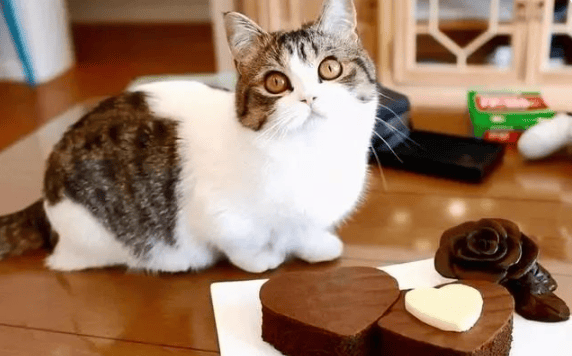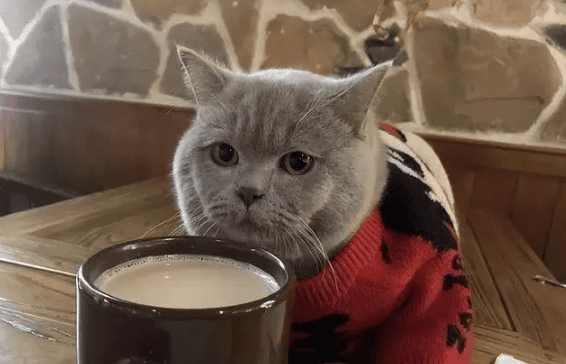When interacting with cats, we need to pay attention to their dietary health. Some foods are dangerous for cats and may even be life-threatening. These 8 kinds of food cats “can’t eat”, but many owners often feed them!
Chocolate
The theobromine contained in chocolate is a toxin to cats, and they cannot effectively metabolize and excrete this substance. Ingesting a small amount may cause vomiting and diarrhea in cats, while ingesting a large amount may cause epilepsy, arrhythmia and even death. Therefore, chocolate is a food that cats must not touch.

Grapes and raisins contain unknown toxins that may damage your cat’s kidneys. Even a small amount may cause symptoms such as vomiting, diarrhea, and loss of appetite in cats. If you find that your cat has ingested grapes or raisins, seek veterinary help immediately.
Caffeine and theophylline
Caffeine or theophylline is contained in coffee, tea, cola and other beverages, which is also a toxin for cats. Excessive intake may cause symptoms such as vomiting, diarrhea, and cardiac arrhythmia in cats. Therefore, foods and drinks containing caffeine or theophylline should be avoided in cats.
Green onions and green onions
Onions and green onions contain ingredients that can destroy your cat’s red blood cells, causing anemia and difficulty breathing. Therefore, any food containing onions and scallions should be avoided for cats.
Xylitol
Xylitol is the sweetener in many chewing gums and some candies and is toxic to cats. Ingestion of xylitol may cause symptoms such as hypoglycemia, vomiting, and diarrhea in cats. Therefore, avoid exposing your cat to foods or chewing gum that contain xylitol.
High-fat food
High-fat food may cause problems such as pancreatitis, cardiovascular disease, and obesity in cats. Excessive fat intake may also cause digestive problems such as vomiting and diarrhea. For your cat's health, choose low-fat foods and control their food intake.
High-salt foods
A cat’s kidneys cannot handle excess salt, so high-salt foods can cause kidney problems in cats. Long-term consumption of high-salt foods may also cause vomiting and diarrhea in cats. Therefore, owners should control the cat’s salt intake and choose low-salt cat food to feed the cat, which can maintain the cat’s health and extend its life.

Raw meat and fish may contain a large number of bacteria, parasites and other harmful substances, such as salmonella, Toxoplasma gondii, etc. These bacteria and parasites can cause digestive, neurological, and immune problems in cats.
Therefore, for your cat’s health, uncooked meat and fish should be avoided. You can feed your cat some cooked meat on a daily basis or buy meat snacks directly for your cat, which is more convenient for feeding.
Conclusion: Do you also know what foods cats cannot eat?
Why not share the beautiful photos of your cat in the comment area~

 扫一扫微信交流
扫一扫微信交流
发布评论